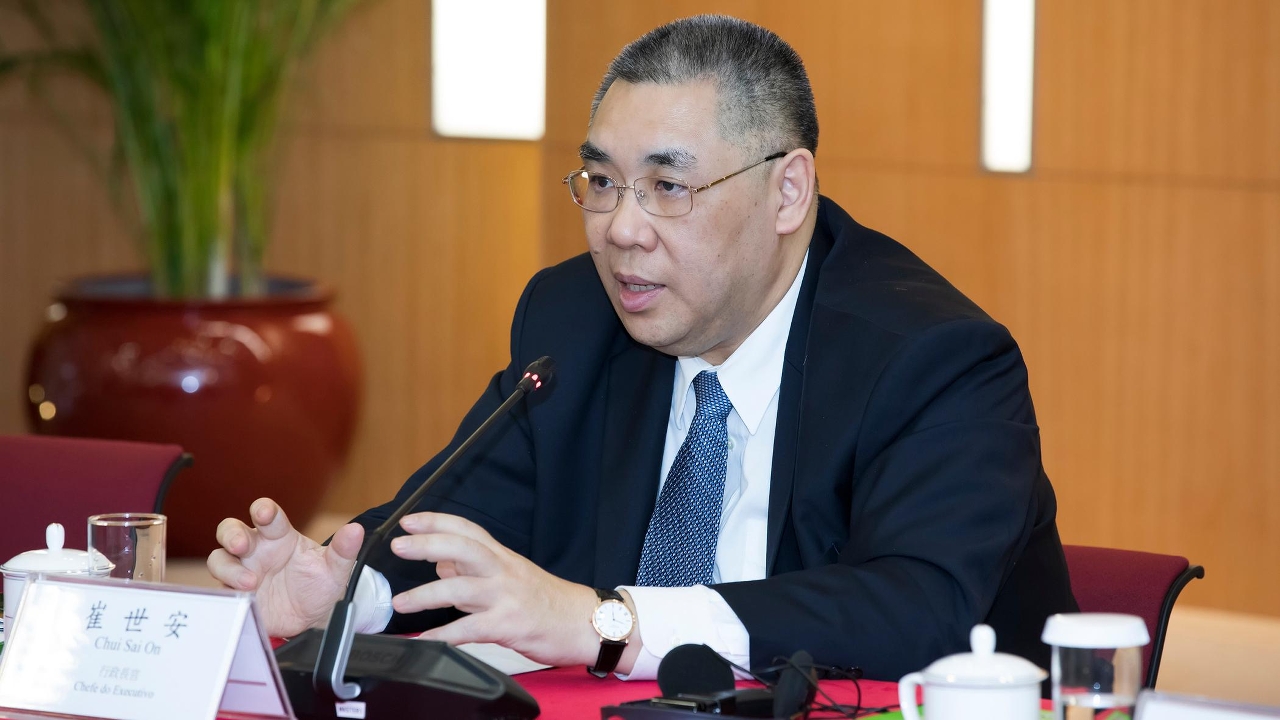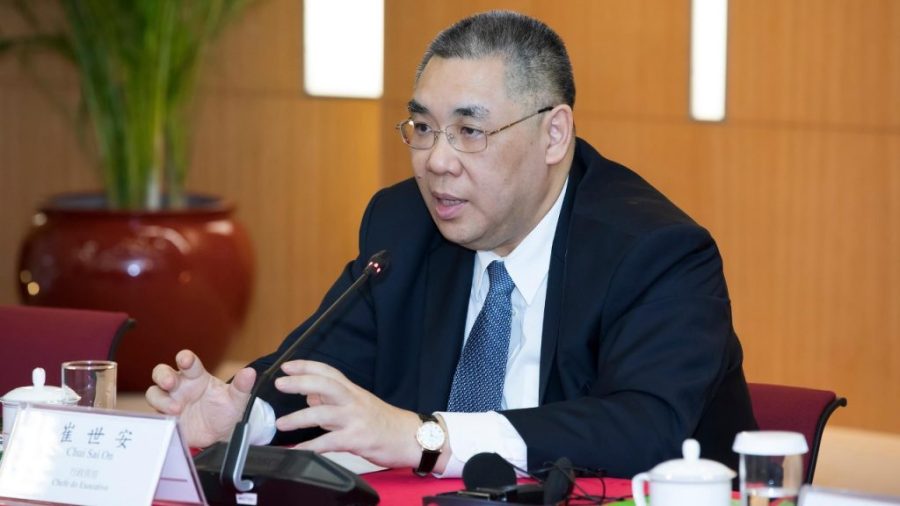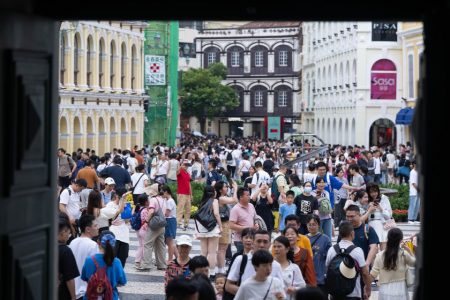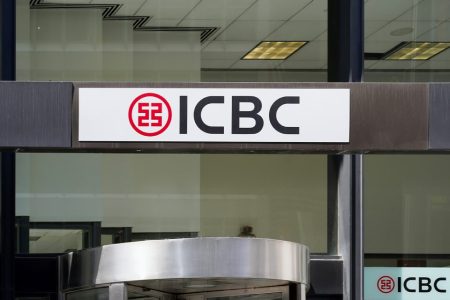Chief Executive Fernando Chui Sai stressed on Tuesday that Macau has been able to keep up social and economic progress, ensure political stability, improve people’s livelihoods, speed up infrastructure development and maintain social harmony during his 10 years at the helm of the local government.
Chui made the remarks in a speech in the hemicycle of the Legislative Assembly Tuesday afternoon.
The speech focused on the government’s work this year and a budget proposal for next year. Chui also highlighted his two-term government’s achievements since he became Macau’s chief executive in 2009. His term ends at midnight on December 19 when he will be succeeded by Ho Iat Seng.
Chui is Macau’s second chief executive and third-term chief executive.
Chui pointed out that he discussed his budget proposal for next year with Ho. Chui said that Ho agreed with it. Ho’s government is slated to present its 2020 budget bill to lawmakers early next year.
Chui said that his government team had drafted its budget proposal in accordance with the Macau Basic Law and the Budget Framework Law, with a view to ensuring Macau’s stability and the normal functioning of the public service.
In the budget proposal presented by Chui, the government suggests to continue with the existing tax relief measures, such as the 30 percent exemption of personal income tax, with the basic allowance set at 144,000 patacas, and the 60 percent rate of personal income tax, subject to a ceiling of 14,000 patacas. The personal income tax allowance for employees aged 65 and over, and for employees with disabilities, amounts to 198,000 patacas.
Among the other measures to continue are waivers for business taxes, vendor-licence fees, stamp duty on life or non-life insurance, and restaurants’ exemption from tourism tax.
Chui also proposed that the government’s so-called “wealth-sharing” handouts continue next year, 10,000 patacas for each permanent resident and 6,000 patacas for each non-permanent resident.
The outgoing chief executive also said that the next government would continue to offer a wide range of subsidies and allowances for the elderly, disadvantaged households, low-income full-time employees and all those who need help.
Chui also said that his government had made good progress in implementing the 2016-2020 Five Year Development Plan of the Macau Special Administrative Region (MSAR), with a 90-per cent completion rate by the third quarter of this year. It is the MSAR’s first plan of its kind.
Chui said the aim of his 10-year term was to achieve long-term stability for the MSAR, which on December 20 celebrates the 20th anniversary of its establishment.
The 62-year-old chief executive, who was Macau’s policy secretary for social affairs and culture under Macau’s first chief executive Edmund Ho Hau Wah between 1999 and 2009, also said that 2019 was a milestone for him and his team, pointing out that the Taipa line of the Light Rapid Transit (LRT) system will open soon and that sovereign bonds were recently issued in Macau for the first time.
He also said that the progress achieved during the past decade had been largely due to the strong support of the central government in Beijing and the wisdom and effort of the Macau people.
Chui also predicted that the MSAR’s financial reserves will reach 627 billion patacas (0.627 trillion patacas) at the end of this year. He described Macau’s financial situation as “solid”.
Chui also proposed a 3.4 per cent increase in public servants’ salaries from January 1.
All tax-related and other budget-related proposals must be approved by lawmakers to become law.
Chui said his 10 years of experience as Macau’s head of government had proved that the proper, persistent and comprehensive implementation, based on unswerving confidence, of the principle of “One Country, Two Systems” was the key to ensuring the long-lasting stability of the MSAR.
The chief executive, who holds a PhD in Public Health from the University of Oklahoma, also said that only by safeguarding national sovereignty, state security and focusing on development could Macau’s long-term stability and prosperity be promoted an maintained.
Chui thanked Macau people in general and local civil servants in particular as well as the central government and the latter’s representative offices in Macau for their support during his decade-long tenure.
The chief executive, who went to high school in Honolulu, underlined his government’s commitment to getting more public housing projects off the ground and the further consolidation of patriotic education. He stressed that Macau continues to enjoy public order.
According to the Macau Post Daily, Chui also emphasised his government’s various measures to turn Macau into a “smart city” and tackle its transport issues.






